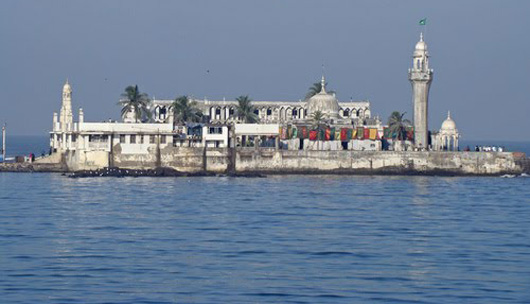Mumbai, Feb 4: The Bombay High Court on Wednesday asked the Maharashtra government to give its opinion on a Public Interest Litigation, challenging the decision of the Haji Ali Trust to ban the entry of women in the sanctum sanctorum of the historical Dargah.

A Bench headed by Justice VM Kanade asked Advocate General Srihari Aney to submit arguments on behalf of the State on February 9, stating whether women should be allowed into the sanctum sanctorum.
The Supreme Court is seized of a matter about the entry of women in the Sabarimala temple of Kerala. This is also the first time that the State has been asked to give its views on women’s entry into a shrine.
On Wednesday, when the PIL came up for hearing, the Bench was told that the Advocate General had to appear before another Bench in some other matter. Hence, the PIL on Haji Ali Dargah was posted for arguments on February 9, when the Advocate General has been asked to argue on behalf of the State.
The HC had indicated last month that it would wait for the Supreme Court’s ruling on the entry of women in the Sabarimala temple in Kerala before deciding on the plea in the case of Haji Ali Dargah here.
The judges had said both the matters were similar and hence, they would like to see what view the Supreme Court takes on the issue before they give a ruling on the interim relief sought by the petitioner in the Bombay High Court.





Comments
2 Decade back I visited Haji ali Darga just to see what is going on. There is a Masjid in the tiny island adjustacent to Darga. People of all faith are visiting the Darga offer prayers and chadar etc. Most ladies visiting this Darga are prostitutes of Mumbai Redlight Area and aslo I saw they are spreading their hair on the Darga for unknown reason. Its pity to note men also visit the Darga but when the prayer was called hardly there are few people in the Masjid.
Darga or Shabarimala cannot be compared, but visiting Darga is out of Islamic Sharia. There is no speciality in visiting Darga and do not have any importance. Offering prayers at Masjids has more significance.
Whoever puts his trust on other than Allah then he is not believing in one true god.
Our so called Mullas are allowing ladies to visit Darghas whereas they are restricted to Masjid for offering Namaz.
Here Haji Ali Dargha trust refused entry of ladies and the public filed a petition in the court to allow ladies entry in to this Dargha. Our so called Imams of the Masjids should teach the muslim community to offer 5 times regular namaz on priority than visiting dargha.
Flatten it to the ground
Add new comment